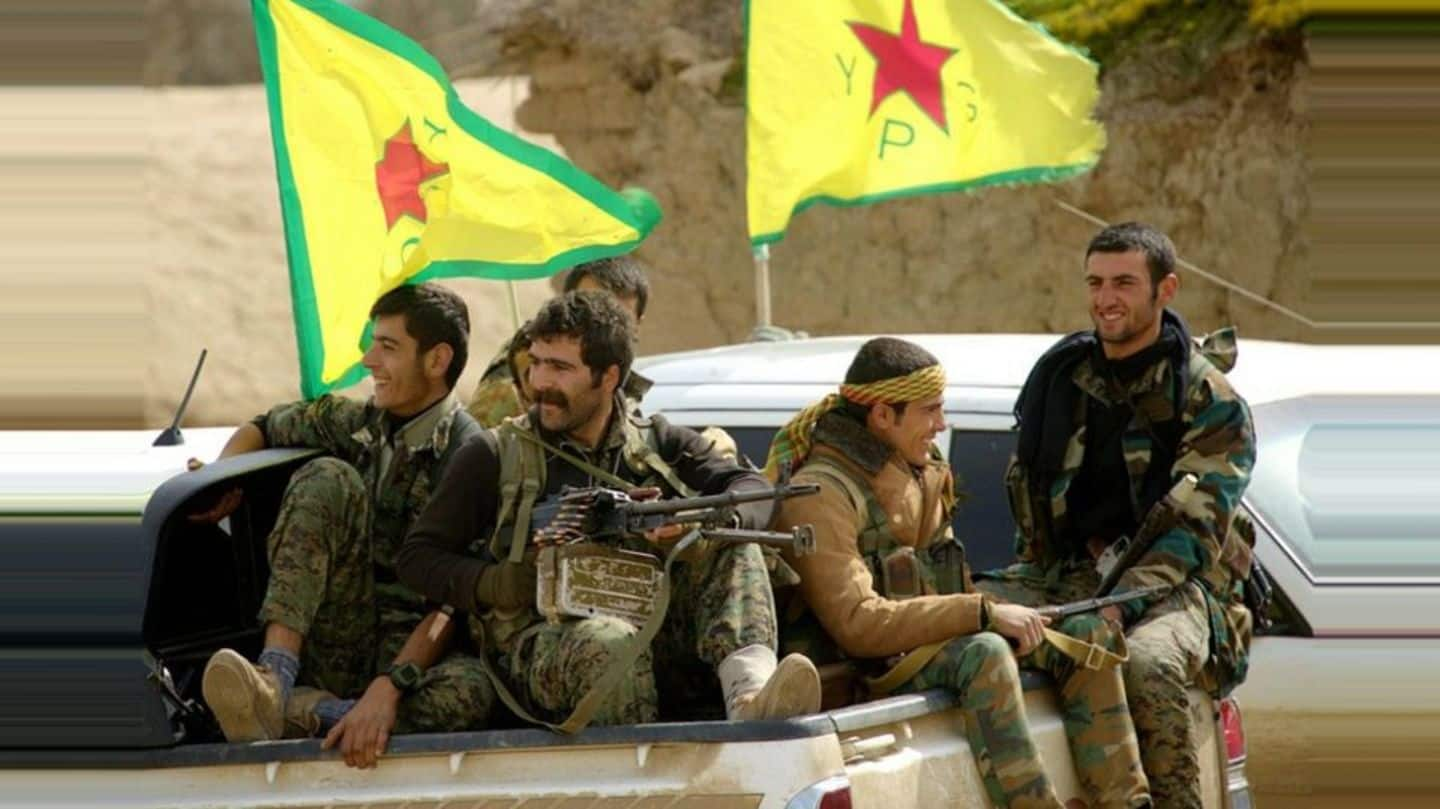
Iraq's military action in Kurdistan: Where does the US stand?
What's the story
Iraqi forces have reportedly seized several key installations in Kirkuk from Kurdish control. Worried about the destabilizing impact of the conflict, the US has urged for calm from all parties. US State Department spokesperson, Heather Nauert has appealed to both parties "to avoid further clashes." Why does the situation worry the US? Where does it stand on the matter? Read on.
28 Sep 2017
Kurdistan referendum: Iraqi Kurds overwhelmingly back independence
On 28 September, the Kurdish community in Northern Iraq signaled its overwhelming desire for an independent Kurdistan, in a referendum. The referendum was held despite vehement opposition from Baghdad and the international community. According to the electoral commission, 92% out of 3.3 million voters backed creating an independent Kurdistan. In reaction to the results, Baghdad threatened Kurdistan with an air and land blockade.
History
Kurdistan: A short history
The Kurds, the fourth largest ethnic group in the region, have been on a centuries-long quest for an independent state. They now have an autonomous province in Iraq with separate institutions, including Parliament. They have expanded their territory to surrounding oil-rich areas. In 2014, when ISIS expanded rapidly in Iraq, the Kurds took control of Kirkuk, a region claimed by the Iraqi central government.
Do you know?
Why is Kirkuk at the heart of the situation?
Kirkuk is an oil-rich province which is thought to have a large Kurdish majority. Being a strategically important province, it is claimed by both Baghdad and Kurdistan. Despite being outside Iraqi Kurdistan, people in Kirkuk were allowed to participate in the referendum, significantly angering Baghdad.
Ground reports
Iraqi Army advance into Kirkuk: What happened?
Iraqi reportedly units seized of the Baba Gurgur oil and gas fields, a state-owned company's offices and a K1 military base. According to Baghdad, the Kurdish Peshmerga forces pulled back without a fight. However, contradictory reports of clashes between the two have also surfaced. Iraqi military vehicles later drove into the heart of Kirkuk and removed the Kurdistan flag on PM Haider al-Abadi's orders.
US position
What about the US?
President Trump had earlier said that the US is not taking sides. In a recent statement, Nauert conveyed that Washington was very concerned about the clashes. "We support the peaceful exercise of joint administration by the central and regional governments, consistent with the Iraqi constitution, in all disputed areas," she added. Nauert further conveyed that Washington was working with concerned parties to encourage dialogue.
Conclusion
Kirkuk clashes: Why is everyone worried?
The US is worried that the situation would threaten Iraq's fragile stability and slow down the fight against ISIS. Washington further stands to lose face if US-trained Iraqi forces continue to use weapons provided by them to suppress the Kurds, who it also supports. Turkey and Iran, who have a substantial Kurdish population, worry that this would trigger secessionist movements in their respective countries.